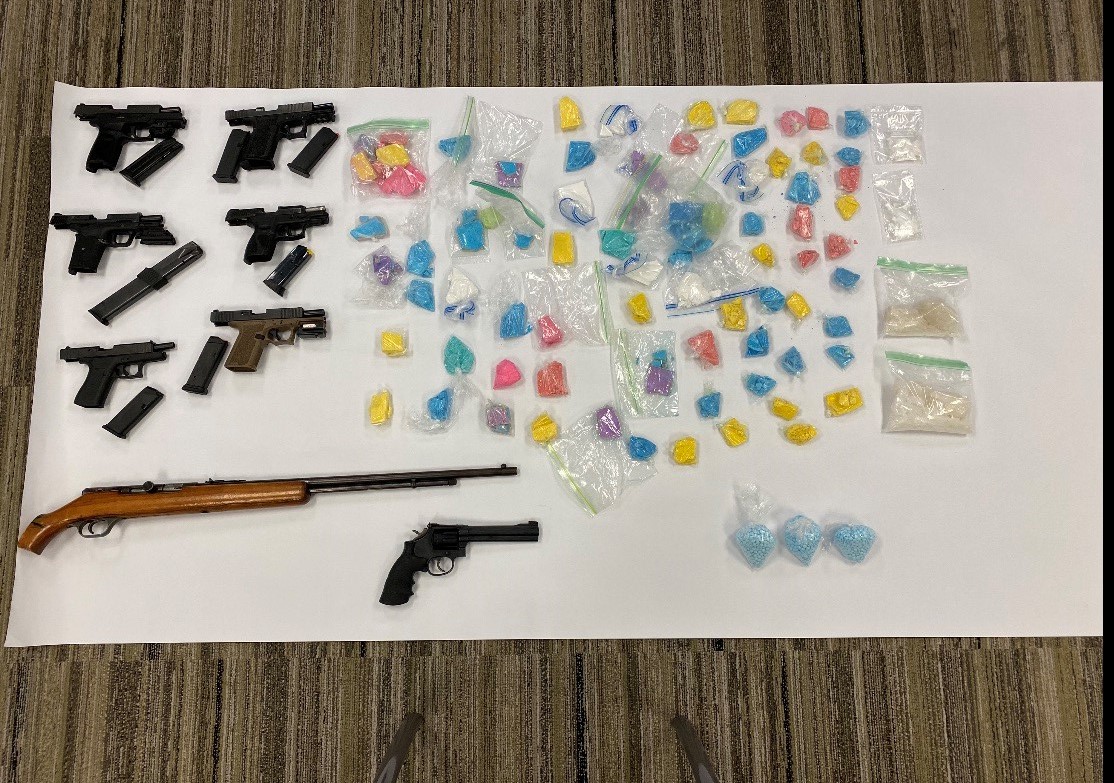PORTLAND, Ore. — Federal authorities announced the arrest of two Honduran nationals unlawfully residing in Oregon, charging them with trafficking large quantities of fentanyl in East Portland.
Arrests and Charges
The defendants, Omar Rodriguez-Salgado, 28, and Cesar Antonio Gutierrez-Doblado, 19, appeared in federal court for the first time on Tuesday. Both men face charges of possession with intent to distribute fentanyl.
According to court documents, investigators observed Rodriguez-Salgado on Sept. 18, 2025, in a neighborhood known for drug distribution. When officers attempted to stop his vehicle, he initially fled. After a short pursuit, Rodriguez-Salgado consented to a search of his car. Inside, investigators seized approximately 274 grams of suspected fentanyl, along with packaging materials consistent with distribution.
Also Read
Shortly afterward, Gutierrez-Doblado was taken into custody based on probable cause that he too was distributing fentanyl. A search of his person, vehicle, and residence uncovered more than 3 kilograms of fentanyl, also packaged for sale, and approximately $85,885 in cash, which investigators believe were proceeds from trafficking.
Federal Proceedings
Both men were ordered detained pending further court hearings. Their arraignments are scheduled for Oct. 22, 2025.
Assistant U.S. Attorney Scott Kerin is prosecuting the case on behalf of the District of Oregon.
Authorities emphasized that a criminal complaint is an accusation and not evidence of guilt. Both defendants remain presumed innocent until proven guilty in a court of law.
Multi-Agency Investigation
The arrests were the result of a coordinated investigation involving the Federal Bureau of Investigation (FBI), Homeland Security Investigations (HSI), the Portland Police Bureau, and the Multnomah County Sheriff’s Office.
These agencies are part of the Oregon-Idaho High Intensity Drug Trafficking Area (HIDTA) Program, a federally funded initiative that provides resources for multi-agency enforcement operations. HIDTA is sponsored by the Office of National Drug Control Policy and is tasked with combating drug trafficking in high-risk regions.
Officials noted that the case demonstrates how collaboration between federal and local agencies is critical in addressing the state’s growing fentanyl crisis.
The Fentanyl Crisis in Oregon
Fentanyl is a synthetic opioid that is approximately 100 times stronger than morphine and 50 times stronger than heroin. Even tiny doses — as little as 2 milligrams, the equivalent of just a few grains of powder — can be fatal.
The rise of illicit fentanyl has fueled a surge in overdoses across Oregon and the Pacific Northwest. Law enforcement and public health experts warn that fentanyl is often pressed into counterfeit pills or mixed into other drugs, leaving users unaware of the danger until it is too late.
In Portland, authorities have repeatedly pointed to fentanyl as a leading driver of overdose deaths, with emergency responders reporting increasing calls related to opioid poisoning.
Community Warnings and Support
Law enforcement is urging the public to remain vigilant. Anyone who encounters suspected drug activity is encouraged to report it to local police or federal authorities.
Meanwhile, public health officials stress that resources are available for individuals struggling with substance use.
-
If you are in immediate danger, call 911.
-
For addiction help, contact the Lines for Life Substance Abuse Helpline at 1-800-923-4357 or visit www.linesforlife.org. The hotline operates 24/7.
-
Support is also available by texting “RecoveryNow” to 839863 between 2 p.m. and 6 p.m. Pacific Time daily.
Looking Ahead
As the fentanyl crisis deepens, law enforcement agencies continue to target distribution networks supplying the drug to Oregon communities. The federal cases against Rodriguez-Salgado and Gutierrez-Doblado are now moving forward, with prosecutors preparing to present evidence at their October arraignments.
For the Portland community, the arrests highlight both the scope of the fentanyl epidemic and the ongoing efforts of authorities to confront it — a fight that, officials say, requires both enforcement and expanded support for those struggling with addiction.












